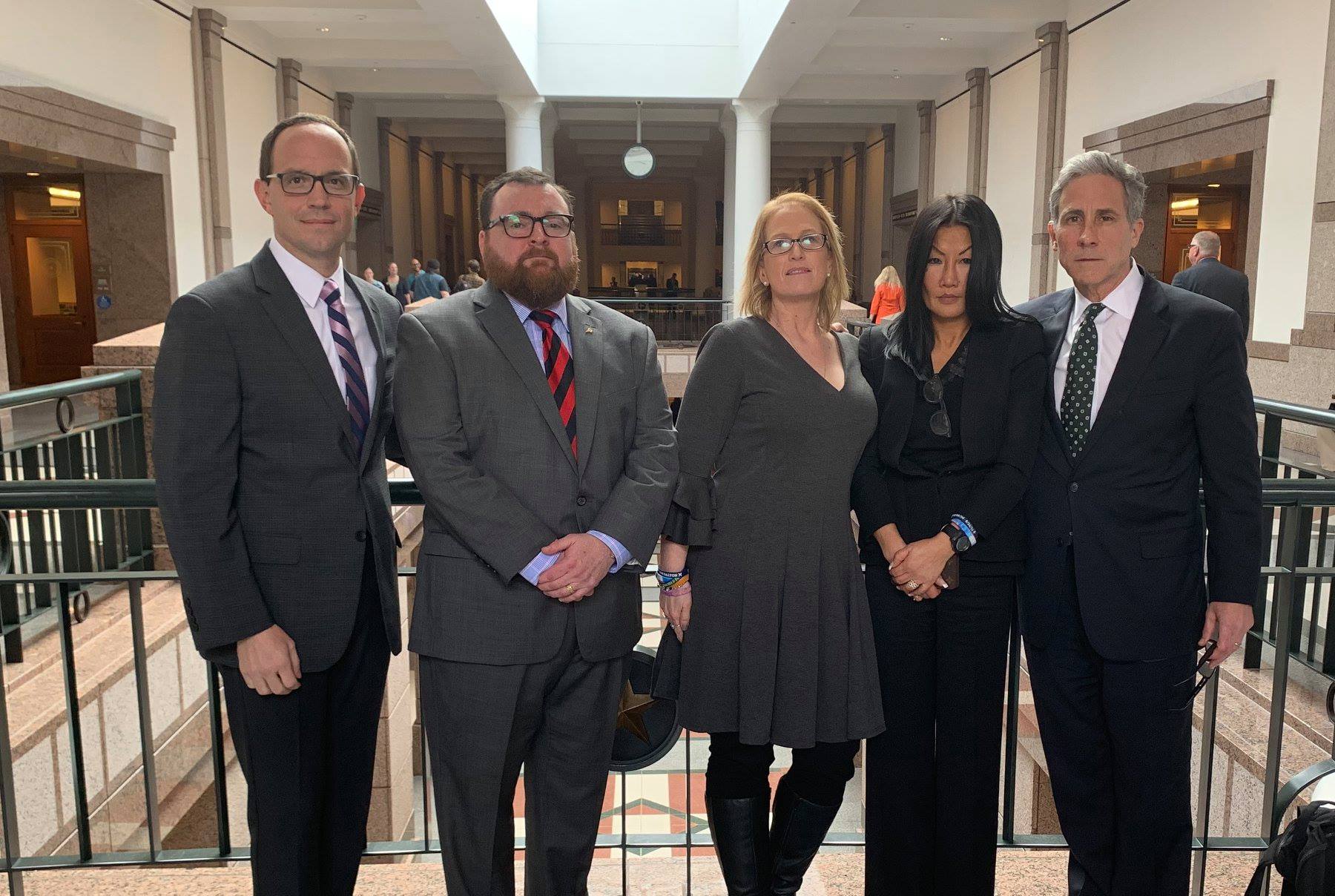The Stop Campus Hazing Act (S.2901, H.R. 5646) requires each institution of higher education that receives federal student aid to maintain and update biannually a website page that discloses student organization violations of the institution’s code of conduct that threaten the safety of students. The report would detail the corrective measures imposed by the school on the student organization. This would allow students and parents to make more informed decisions about which student organizations are safe to join. States such as South Carolina and Pennsylvania have already adapted similar laws, but it would be more effective for federal law to include these disclosures to cover all schools.
FEDERAL LEGISLATION: STOP CAMPUS HAZING ACT

Families of hazing victims meeting with U.S. Representative Marcia Fudge (Ohio)

Special thanks to Arnold & Porter for their pro bono lobbying support.
STATE LEGISLATION
Our coalition worked with prosecutors, legislators and parents to develop this model state legislation. (See more below)
Legislative News
‘So another family doesn’t suffer’ | NC anti-hazing bill advances, years after Lenoir-Rhyne student’s...
Harrison's Law would elevate hazing charges for students to a Class A-1 misdemeanor. It would also create a new felony offense for hazing by school officials.
HICKORY, N.C. — Punishments for hazing on college campuses could soon get stricter in North Carolina under a proposed bill moving through the General Assembly, honoring...
Passage of Anti-Hazing Bill Shows Compromise Still Possible
This year, the U.S. House of Representatives and the U.S. Senate both unanimously passed the Stop Campus Hazing Act, and on Christmas Eve, President Joe Biden signed it into law. This legislation, championed by Democrats and Republicans alike, creates reporting standards in higher education, requires hazing prevention training for student leaders...
Cassidy’s Stop Campus Hazing Act signed into law by Biden
For the first time in American history, a national anti-hazing bill, introduced by U.S. Sen. Bill Cassidy (R-LA) in the U.S. Senate, has become federal law.
“Students should feel safe no matter what school they choose,” Sen. Cassidy said on Dec. 26. “With this new law, we ensure hazing is...
State-based efforts

The ANTI-HAZING COALITION at work in Austin, Texas, as legislation was discussed in committee at the Texas State Capitol. The group present included Jud Horras, NIC CEO; Jay Maguire, UT alumnus and volunteer; Deb Debrick, her son Dalton died at Texas Tech; Sylvia and Shawn Cumberland, their son Nicky died at UT - Austin.
The Coalition is pursuing state-based anti-hazing legislation that delivers:
- Beginning with the 2020-2021 academic year, each educational institution shall maintain and publicly report actual findings of violations of the educational institution’s code of conduct or federal or state laws relating to hazing that are reported to campus authorities, local law enforcement, national organizations or any organization formally affiliated with the educational institution.
- Significantly strengthens criminal penalties and encourages prosecution. We wanted both misdemeanor and felony level hazing to be introduced. Included in the felony hazing is an automatic trigger from a specific blood alcohol content (BAC) due to high levels of alcohol consumption. We believe local/national organizations and host institutions should be held accountable for hazing when appropriate.
- There should be penalties for those who fail to seek assistance when an incident arises.
- We believe in some limited immunity for those who wish to report hazing in good faith.
- Calls for university accountability for bad actors. We recognize that each host institution has a different adjudication process. However, no matter what that process is, the host institution should also use their process to investigate individuals as well.
- Provides amnesty to encourage people to call for help.
- Each state shall develop a statewide educational plan for preventing hazing at education institutions. This includes secondary and post-secondary institutions.
- Each Department of Education shall establish a “State Anti-Hazing Fund” to collect any fines incurred from this disciplinary sections of this law. That money shall be used for grants to secondary and post-secondary schools for educational purposes.
Model State Legislation
Our coalition worked with prosecutors, legislators and parents to develop this model state legislation.



